| Year-round Resident | |
| Has Nested in Park |
Common Grackles are common year-round residents in the Washington metro area. They are common at Monticello Park and have nested there. They are omnivores and will eat anything, from small seeds to small songbirds. After the spring migrants have left, you can still see flocks of grackles in the park in the summer.
Where to See Them in the Park
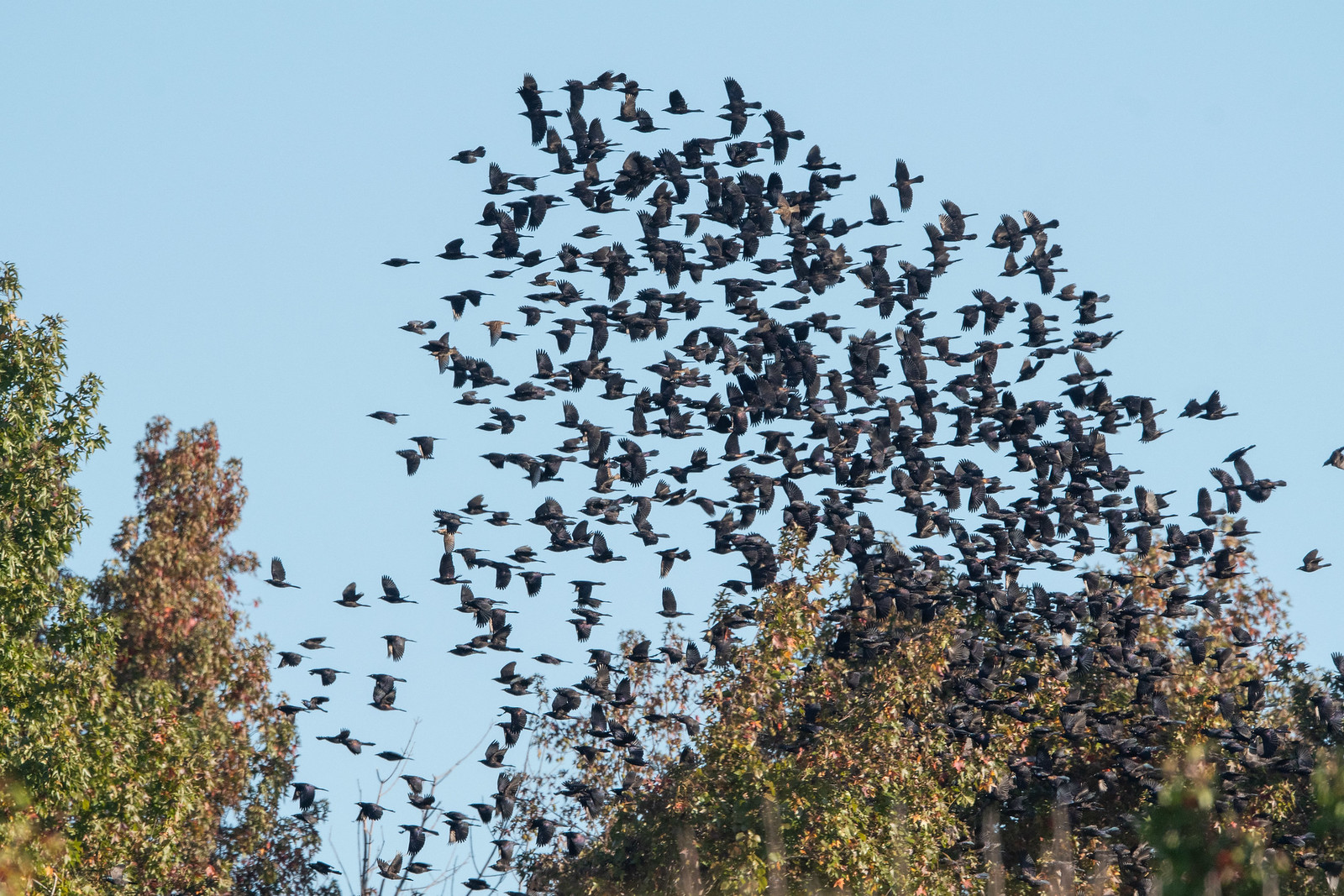
Grackles are large birds who travel in large noisy flocks that resemble gangs. When they are in the park, you will know it. At some times of the year, you can see them on the ground on the ridge, tossing leaves while looking for food.
Physical Description
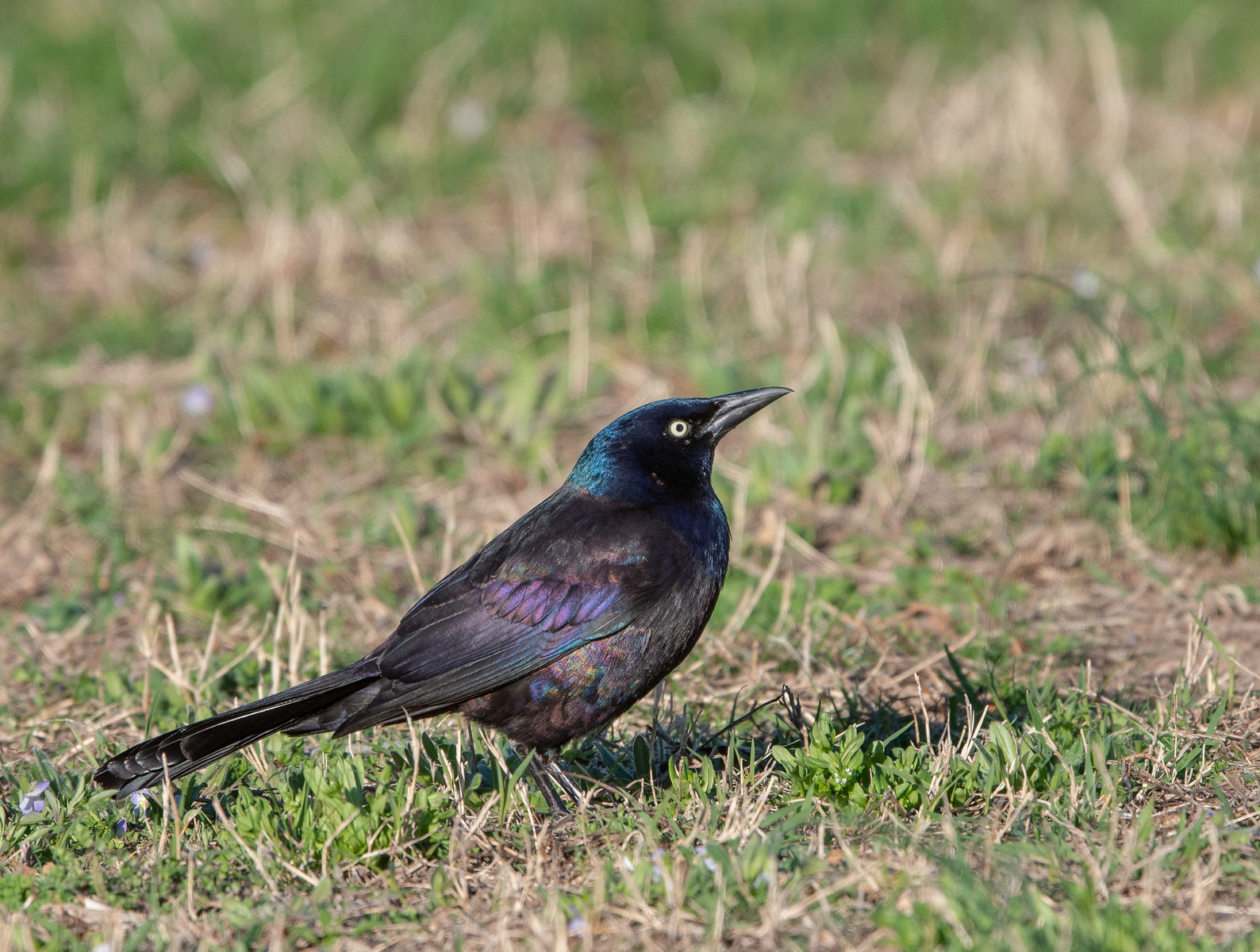
Common Grackles are more than a foot long with a keeled tail. They use their long tail in behavioral displays, and they sometimes walk around with it sticking almost straight into the air. Grackles have a flat head, a prominent pale eye, and a large, heavy bill that curves slightly downward. They have long, strong legs, and their walk has a side-to-side quality that resembles a swagger. The males have iridescent plumage, which can be quite beautiful.
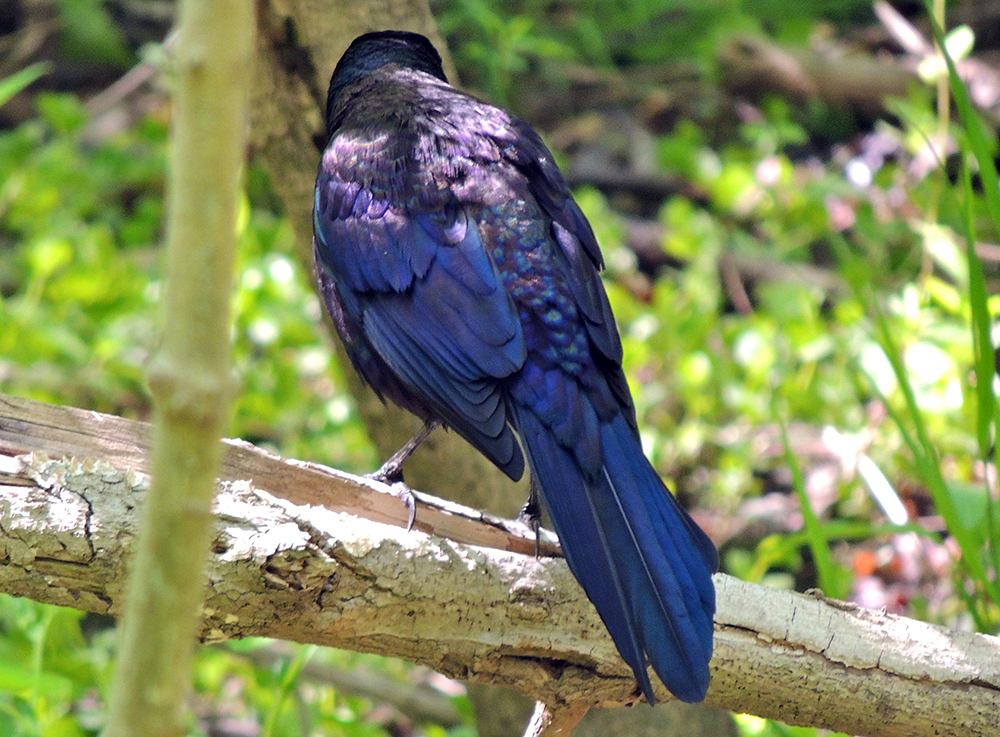
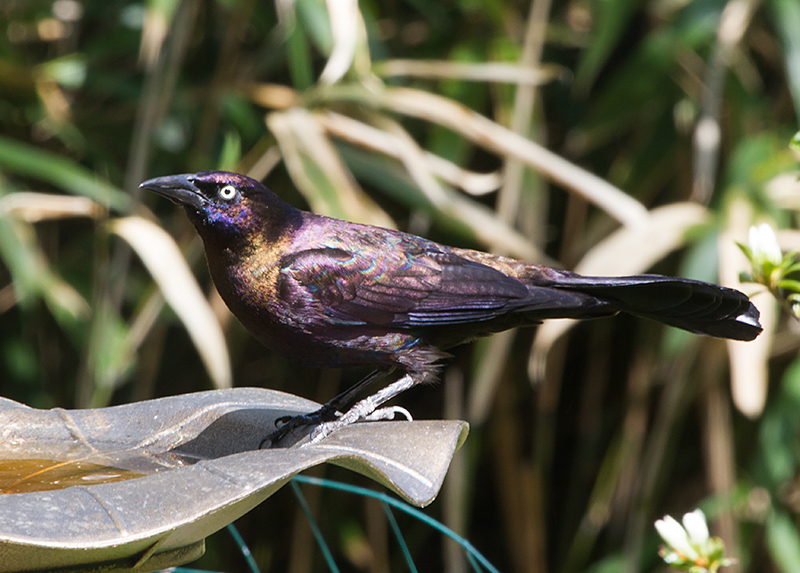
The word iridescent comes from the Latin iris, which means rainbow. In good light, a grackle's feathers reveal many colors of the rainbow.
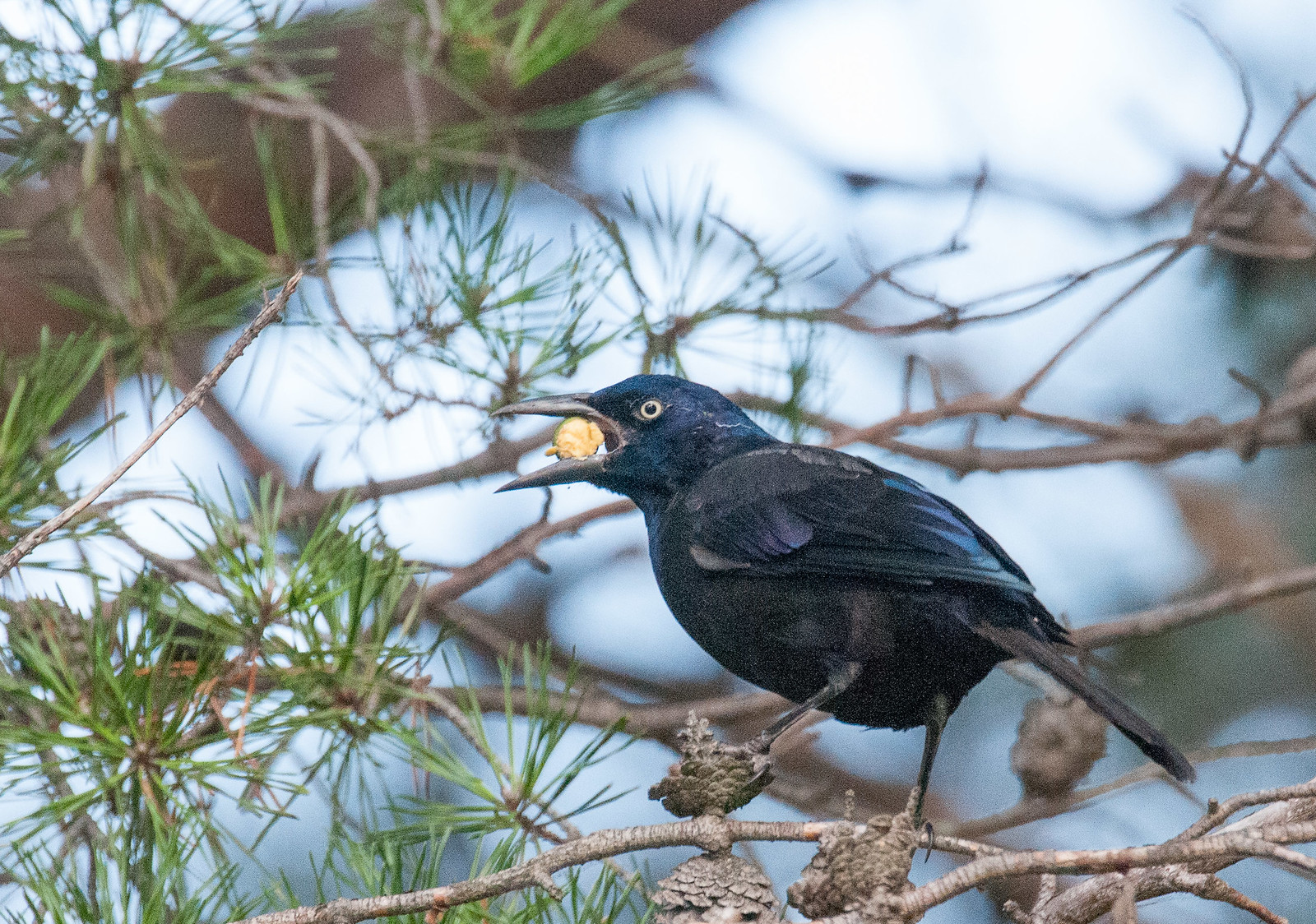
The plumage of female is duller, with only the head and the throat being iridescent. Females have a pale iris. Immature grackles are dull all over, and they have a dark iris.
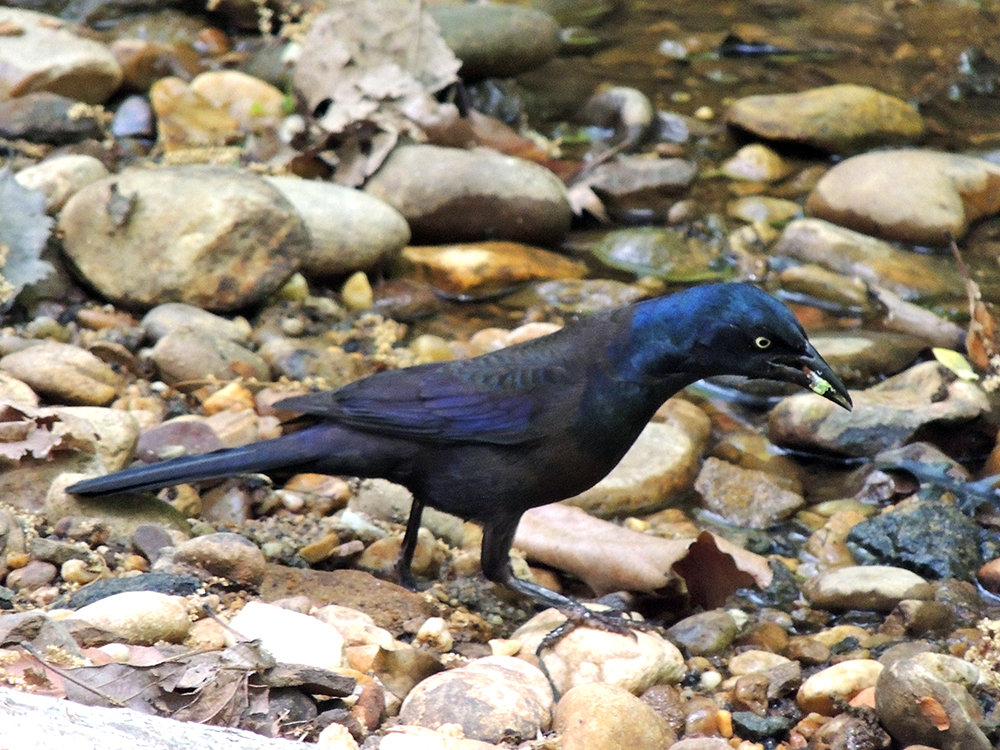
Grackles often go into the stream. In addition to bathing and drinking, they look for food in the stream. They sometimes dip food into the water; the female in the above photo was doing this before taking it back to her nestlings.
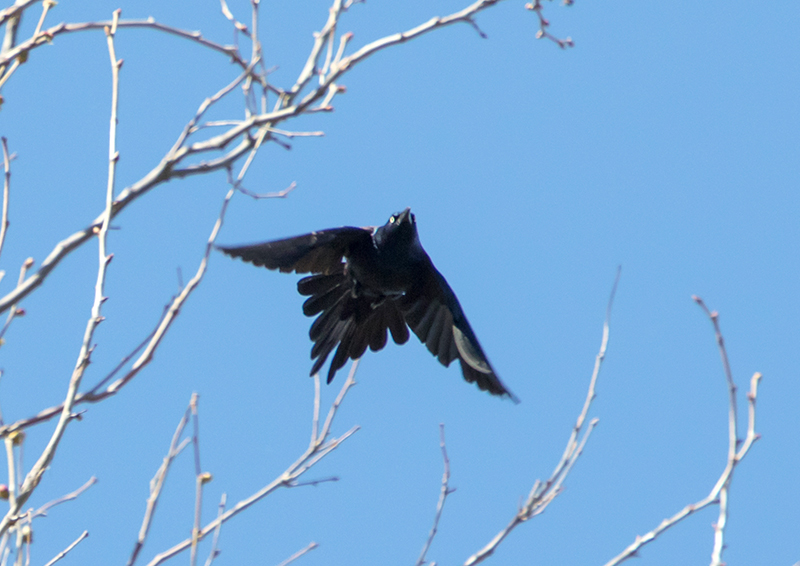
In flight, grackles sometimes spread their long tail in a distinctive triangular shape.
Vocalizations
Common Grackles produce a variety of sounds, none of which are musical. The sounds are mostly croaks, squeaks, and whistles. A common call is a deep chack.
Hear the vocalizations of the Common Grackle.Notes
Common Grackles used to be split into two species — the Purple Grackle, who predominates in the Washington Area, and the Bronzed Grackle, who is found further north. They are in the same family as the New World blackbirds, and they are not related to crows. They are industrious birds, and you rarely see them standing around doing nothing. Grackles will try to steal worms from robins, and you sometimes can see robins at Monticello flying aggressively at grackles. Grackles also can be fierce. One afternoon at Monticello, a Common Grackle flew like a Sharp-shinned Hawk, caught and killed a House Sparrow, and then plucked it and ate it.
Origin of Names
Common Names: Common from its relative abundance compared to other grackle species. Grackle from the Latin word for a jackdaw or other black bird species.
Genus Name: The origin of Quiscalus is unclear; it might come from a word that means quail, but this would be inappropriate for a member of the blackbird family.
Species Name: Quiscula is an alternate spelling of the feminine form of Quiscalus.
Common Grackle video footage
Return to the Index
